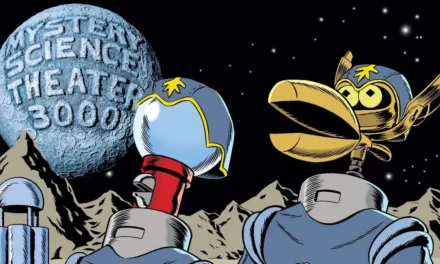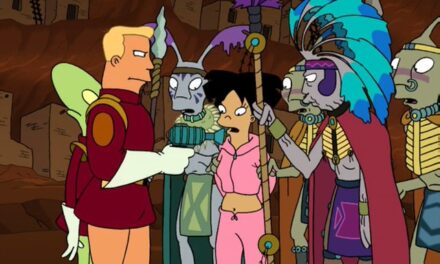Everyone is talking about Stephen Graham and Jack Thorne’s latest venture: the 4-part series, Adolescence, that hit Netflix screens on March 13th.
And what a series it is.
I’m not going to go too much into the story (as surely everybody knows it by now) suffice to say it is about an adolescent boy and his part in a heinous crime that nobody can quite believe he has committed.
For the Guardian’s Lucy Mangan, writing on 13 March, Adolescence is the ‘closest thing to TV perfection in decades’, Ian Youngs, the culture reporter for the BBC website, cites many critics claiming Adolescence as ‘landmark TV’. Almost all these reports lead with the remarkable technical achievements of the series, principally that each episode was filmed in one long take (often following intense rehearsals and many takes of the episode). This is usually followed by the outstanding (read dazzling) performances of the actors, with particular attention paid to the principal actor, Owen Cooper, whose tour-de-force portrayal of Jamie Miller is the 15-year old’s first acting role and Erin Doherty who, for Mangan, is ‘emerging as one of the best actors of her generation’. All well-deserved praise.
One week later (Saturday 22 March) and the Guardian ran another story about the drama with Michael Hogan’s headline reading ‘From the police to the prime minister: how Adolescence is making Britain face up to toxic masculinity’. The article quotes Stephen Graham saying that his motivation for teaming up with Thorne was that he was ‘horrified by a spate of violent incidents across Britain in which teenage boys committed deadly knife crimes against girls.’ Collaborator Jack Thorne adds ‘they wanted to “look into the eye of male rage”.’
And so they did. From the original crime to the impact it had on his parents, from the terrible attitudes towards women down to the various micro-aggressions – like Detective Sargeant Misha Frank (Faye Marsay) being ignored during the initial investigations in the school. The devil is most certainly in the detail in Adolescence.
And yet how has this all been received in America? How can a nation, whose president seems intent on enshrining toxic masculinity into its very fabric, react? Well, apart from long-time friend and colleague, David Bianculli, who said on his 17 March WHYY Fresh Air review (among much else) that ‘It’s like a live stage play – and even if part of your brain is aware of and impressed by the technical gimmick, your heart is pulled in by the gripping story, and the astoundingly believable acting,’ the New York Times’ (pay wall) Margaret Lyons, writes: ‘Its distinguishing features are its depressing realism and the fact that each episode is a continuous scene, which adds to the sense of panic and hurriedness.’ So far, so New York Times (I must confess, I never like the TV reviews in the NYT) and, while admitting that the third episode is ‘one of the more fascinating hours of TV I’ve seen in a long time’ ends the article with a rather specious paragraph highlighting the actors’ performances as ‘varsity weeping’. The Hollywood Reporter’s Daniel Fienberg spends much time on the single take episodes with only one paragraph referring to the real issues at stake: ‘The mystery of what Jamie did or didn’t do is relevant but secondary to bigger questions about masculinity — be it toxic or fragile — in a world of bullying, revenge porn and noxious virtual role models like the name-checked Andrew Tate.’ The Philadelphia Inquirer’s article (pay wall) does not even mention the subject matter but focuses entirely on the technicalities of shooting, how the actors loved the process and the ‘naturalistic acting’ of the team. *SIGH*.
I suppose I should not expect most American critics and viewers to understand the nuances of the writing in a series that is, after all, steeped in British social realism and set in a culture that is so far outside anything America knows. Britain has knife crime. America has gun crime. Both are equally big issues. And yet, good feminist that I am, I cannot help but wonder, ‘why do American critics miss the vile misogyny at the heart of the story?’
The UK’s prime minister talked about Adolescence in parliament. He said that he watched it with his teenage children (a boy and a girl), and stated that ‘this violence carried out by young men influenced by what they see online is a real problem. It’s abhorrent and we have to tackle it’ and called for it to be screened in schools. While, on the other side of the pond (well, mine for 3 more months) and in the country that has recently welcomed Andrew Tate into the fold (in Trump’s home state of Florida, of course), A White House decree from January 20, 2025, stated that, ‘it is time to eradicate the influence of DEI (the Department of Equity and Inclusion)’. Cue a swift scramble to remove all reference to DEI initiatives on websites. Including, of course, any references to gender, race, LGBTQ+ and disability.
Of course, this may be just the White House talking but it clearly reflects the attitudes of the majority of voters in a country where ‘most Americans are unaware that the human rights of women and girls are not secured in the US Constitution. This is despite the impacts being life-changing and wide-ranging’ and post-election polls confirming that ‘56% of young men voted for Trump in the 2024 election’ with only 40% of young women’ voting for him – a ’16-point gender gap’. This gender gap in the voting population partly explains why JD Vance is Vice-President even though he famously called Kamala Harris a ‘childless cat lady’ saying that women like her are ‘miserable at their own lives and so they want to make the rest of this country miserable too’ adding that they ‘”don’t really have a direct stake” in the country’s future.’ And recent hires like that of Darren Beattie to the US Department, despite writing on X (in October 2024) that ‘competent white men must be in charge if you want things to work. Unfortunately, our entire national ideology is predicated on coddling the feelings of women and minorities, and demoralizing competent white men’. I could go on. According to the Guardian on 27 March 2024, in the US ‘men as a class, particularly straight white men, are doing OK. Men still out-earn women significantly and dominate political leadership. Yet in an era in which societal norms have changed rapidly, many men do feel adrift, a change partly driven by socio-economic factors and the decline of manufacturing jobs in favour of services-based roles, some of which men are reluctant to take. While men at the top continue to thrive, others are struggling with “aggrieved entitlement” – a term coined by the sociologist Michael Kimmel to describe the wounded feelings of a person who feels entitled to something and fails to receive it.’ Is it then a stretch of the imagination to think that incel culture, which, in Adolescence, is hidden behind UK bedroom doors, is going mainstream in the US and that may explain why most American critics are avoiding any mention of the ‘manosphere’, toxic masculinity, social media and its impact on women and girls.
Writing this blog has led me to scour the internet for reactions coming from America. Here is one that I apologize for sharing. It is not representative of every American, of course, and is hosted by a Brit: Piers Morgan Uncensored (again, I apologize) but it does contain attitudes that are increasingly becoming enshrined into American politics.
Again, let me be clear, I am not accusing all Americans of sharing these attitudes towards women and girls. I am not saying that critics are deliberately missing the point. But what I am saying is that culturally specific television like Adolescence is often politically diluted when other countries miss the point. Particularly in a misogynist one (of which there are, unfortunately, many).
This week I was lucky enough to attend a preview of George Clooney’s incredibly brave and brilliant Broadway show Good Night and Good Luck. This was a shining example of how TV in America could, and indeed did, change things. Without Ed Murrow taking a stance against Republican US Senator Joseph McCarthy on his March 19, 1954 edition of the CBS show, See It Now, McCarthy would have continued to do even more damage to people’s lives. The performance ended with Clooney delivering the final lines of Murrow’s Keynote address to the Radio-Television News Directors Association & Foundation in 1958 accompanied by a montage of political images from the news both past and present. It can equally be applied to the case of Adolescence:
Those who cannot learn from history are doomed to repeat it – a phrase I come back to time and again. My other favourite saying of the moment? ‘You couldn’t make it up”.
Kim Akass is, for the next 3 months, a Professor of Radio, Television, & Film at Rowan University and managing editor of CSTonline. Let’s hope she isn’t deported as a result of writing this blog.






Fascinating blog, Kim, on how TV starts a conversation, wherever that may lead. Interesting to hear how the debate is playing Stateside. In that spirit I am sharing the Today podcast on ‘Adolescence and crisis of masculinity’.
https://www.bbc.co.uk/sounds/play/m00290bg
‘Amol (Rajan) spoke to Stephen Graham and Erin Doherty, who star in the Netflix series, and in this episode of The Today Podcast he delves deeper into what it means to be a boy today with Richard Reeves, who wrote Of Boys and Men, and Catherine Carr who made a Radio 4 documentary called About the Boys.
And here’s the podcast with Graham and Doherty, https://www.bbc.co.uk/sounds/play/p0ktfd2w